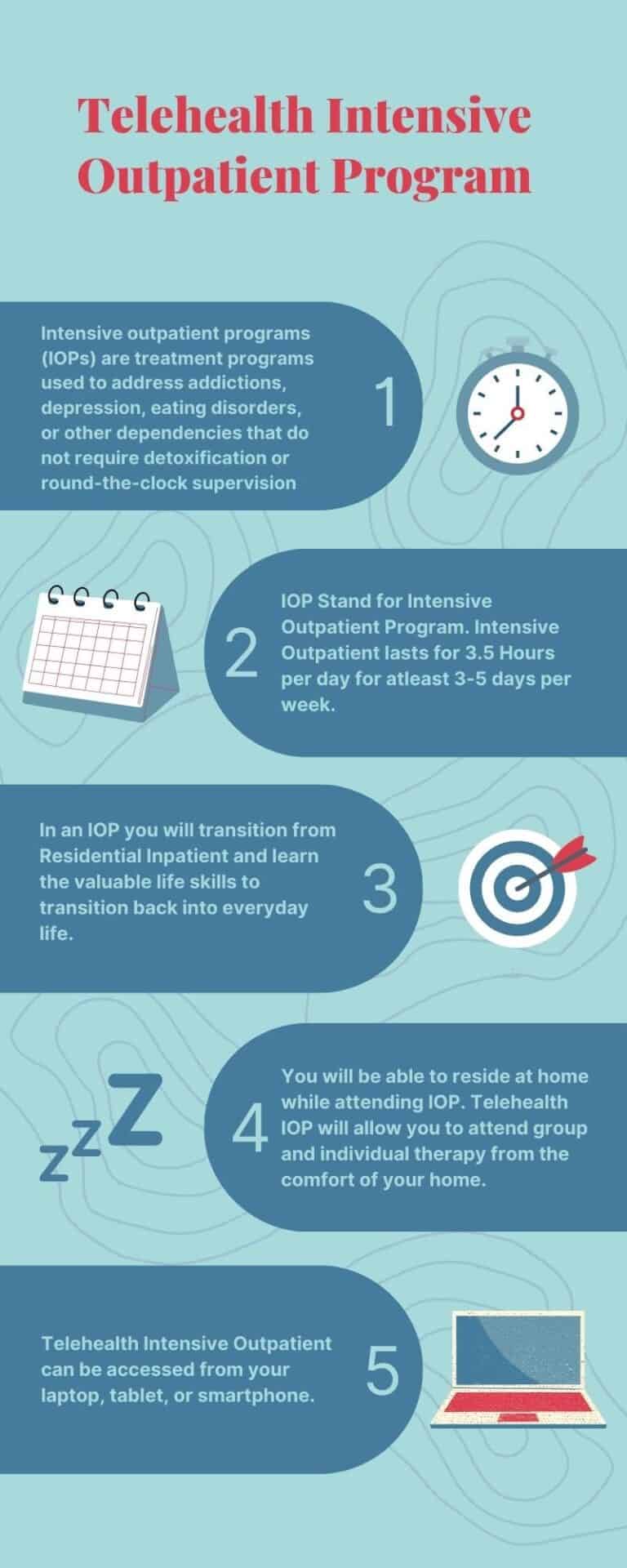The Benefits of Intensive Outpatient Program (IOP) for Long-Term Wellness.
Navigating the Intricacies of Double Diagnosis Therapy Within an Extensive Outpatient Program Setting
In the realm of psychological health and addiction therapy, the junction of double medical diagnosis presents a nuanced difficulty that requires a comprehensive and tailored technique. By exploring the details of dual diagnosis therapy within this intensive outpatient context, a clearer course arises in the direction of holistic and sustainable recuperation for those grappling with these linked challenges.
Double Medical Diagnosis Review
What is the importance of understanding dual diagnosis in psychological health and wellness therapy? It is vital to acknowledge and address this comorbidity as it can considerably impact the effectiveness of mental wellness treatment.
Recognizing double diagnosis is essential as it calls for an extensive and integrated technique to treatment. By recognizing the interplay in between compound usage and mental health, doctor can tailor interventions to fulfill the distinct needs of each person. This holistic technique not only addresses signs but likewise targets hidden factors that add to the dual medical diagnosis.
Furthermore, unattended dual medical diagnosis can lead to a cycle of regression and aggravating psychological health and wellness signs and symptoms. By recognizing the intricacy of twin diagnosis and supplying specialized treatment, healthcare experts can sustain individuals in accomplishing lasting recovery and enhanced psychological well-being.
Tailored Therapy Plans
Acknowledging the detailed interplay between compound usage problems and mental wellness conditions, the advancement of customized therapy strategies is paramount in dealing with the intricacies of twin medical diagnosis in psychological health treatment. Tailored treatment plans are customized approaches that consider the distinct demands, obstacles, and goals of people dealing with double medical diagnosis. These strategies are created collaboratively by a multidisciplinary team of professionals, consisting of psychoanalysts, psychologists, social employees, and addiction experts, to ensure comprehensive and integrated care.
Tailored treatment plans generally involve a combination of therapies, drugs, and behavioral treatments that target both the material usage problem and the psychological health and wellness condition concurrently. These plans may consist of cognitive-behavioral treatment, dialectical actions treatment, medication-assisted treatment, individual counseling, team treatment, and family therapy, to name a few evidence-based treatments. By personalizing treatment approaches to specific scenarios, tailored strategies can attend to the source of dual medical diagnosis, advertise long-term recovery, and boost general top quality of life for people having a hard time with co-occurring disorders.
Integrated Treatment Technique

By integrating social treatments like family members treatment, vocational support, and area resources, the treatment becomes more holistic and tailored to the individual's particular needs. In general, an incorporated care approach in dual medical diagnosis therapy within an extensive outpatient program setup intends to supply detailed, efficient, and personalized care to people encountering co-occurring problems (Intensive Outpatient Program (IOP)).
Obstacles in IOP Establishing
In the context of double diagnosis therapy within an extensive outpatient program, navigating the complexities of co-occurring material usage conditions and mental health problems offers considerable difficulties. One of the main obstacles in the IOP setting is the coordination of treatment between mental wellness specialists and compound abuse professionals to make sure a thorough treatment strategy. This calls for efficient communication, cooperation, and a deep understanding of exactly how these conditions engage and affect each various other.
Moreover, the rising and falling nature important visit homepage usage conditions and psychological health and wellness conditions adds another layer of intricacy - Intensive Outpatient Program (IOP). Customers in an IOP might experience abrupt shifts in their signs or substance desires, needing prompt treatment and adjustment of therapy approaches. Stabilizing the intensity of treatment and assistance while enabling customers the versatility to handle their day-to-day duties can be a fragile balance to preserve
Moreover, resolving stigma and resistance to therapy within the IOP setting can hinder development. Some individuals might be hesitant to reveal their dual medical diagnosis or may really feel embarrassed, impeding their engagement in the therapeutic procedure. Getting over these barriers demands an encouraging and non-judgmental environment that cultivates depend on and openness.

Collaborative Specialist Initiatives

Joint initiatives likewise reach routine interaction and information sharing among browse around this web-site employee to guarantee a cohesive treatment technique - Intensive Outpatient Program (IOP). This might entail situation meetings, joint sessions with the client, or shared paperwork to track progression and adjust treatment techniques as needed. Furthermore, cooperation may include entailing various other medical care professionals such as health care medical professionals or family specialists to supply holistic assistance to the person. Inevitably, a joined front of experts working together boosts the efficiency of double diagnosis treatment within an intensive outpatient program.
Verdict
In verdict, effective twin diagnosis therapy within an intensive outpatient program setting link needs tailored treatment plans and an incorporated treatment approach. Obstacles may develop in this setup, however collective initiatives among specialists can assist navigate these intricacies. By attending to the one-of-a-kind demands of people with co-occurring mental health and substance use problems, IOP programs can offer extensive and holistic care to support recovery and general health.